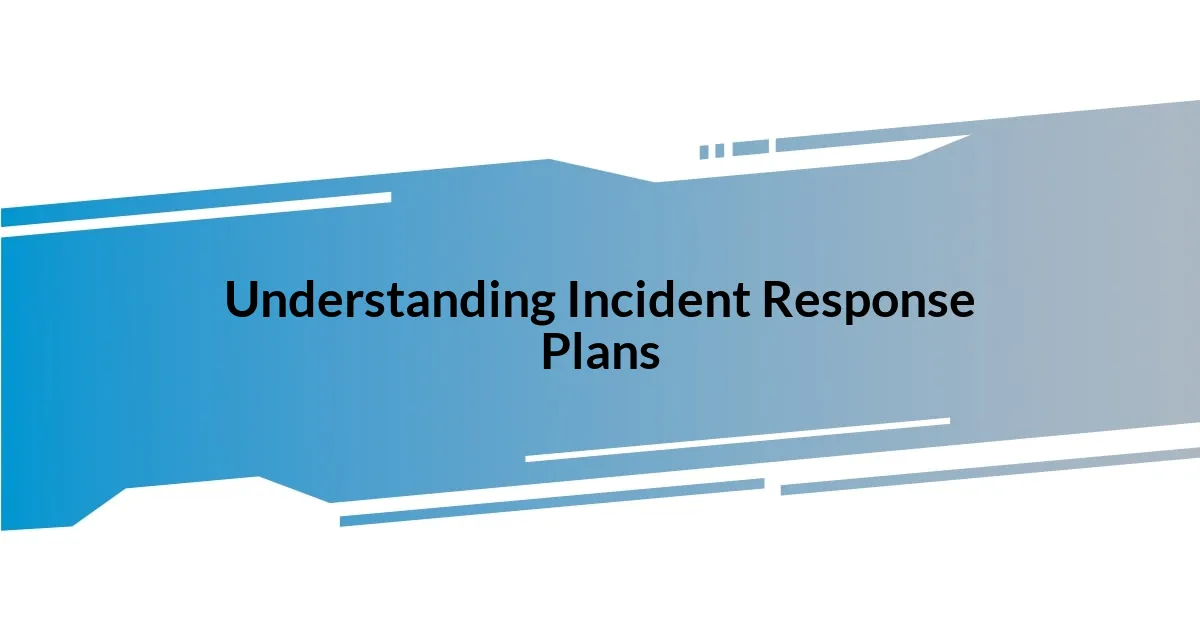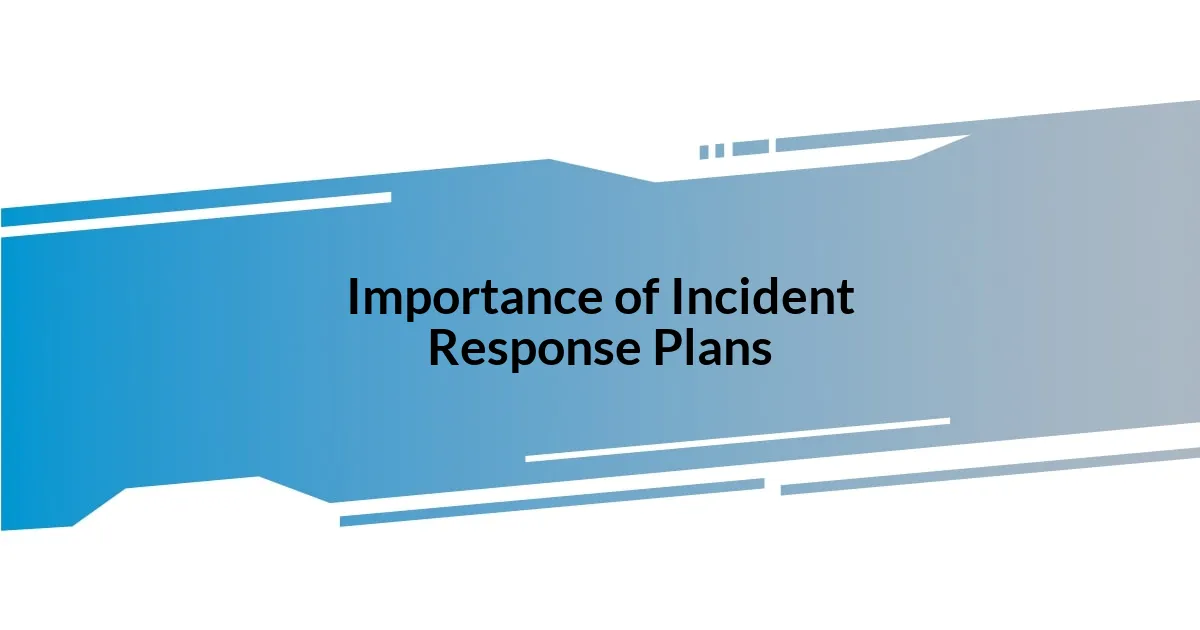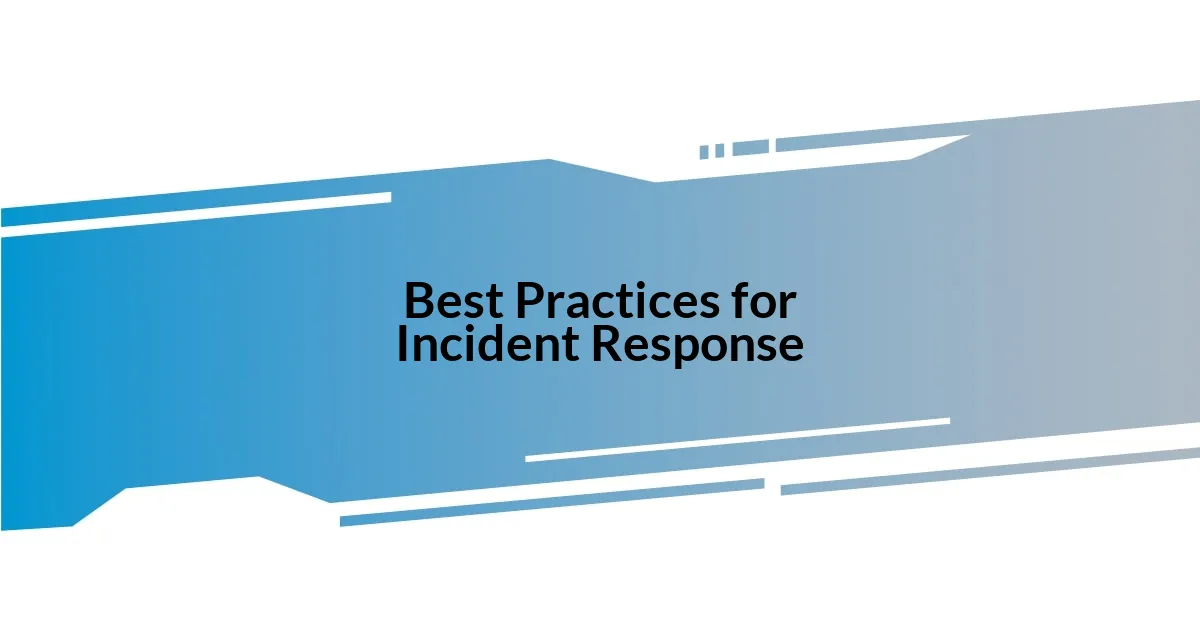Key takeaways:
- Incident response plans provide a structured approach to handle cybersecurity incidents, reducing panic and chaos.
- Continuous evolution and regular training of these plans enhance organizational resilience and team preparedness.
- Effective communication strategies and feedback mechanisms are essential for refining incident response and preventing misinformation.
- Implementing and practicing incident response plans can minimize downtime, data loss, and reputational damage during crises.

Understanding Incident Response Plans
An incident response plan outlines the steps an organization needs to take to deal with a cybersecurity incident effectively. I remember the tense moments during an unexpected breach at my previous workplace; it’s astounding how a well-crafted plan can reduce panic and chaos. The framework provides a roadmap, helping teams know exactly who is responsible for what, which is crucial in the heat of the moment.
Understanding these plans goes beyond just having a document; it’s about fostering a culture of preparedness and swift action. Have you ever found yourself unprepared for a sudden issue? When I faced a minor security incident without a solid plan, I realized how vital it is to think ahead. Developing an incident response plan encourages organizations to anticipate challenges and respond with confidence, rather than scrambling for solutions when things go wrong.
It’s also important to continually evolve these plans based on lessons learned from past incidents. Reflecting on my experience, I found that no two incidents were the same, and with each one, my understanding of our weaknesses and strengths deepened. By iterating on the response plan, organizations can sharpen their defensive capabilities and foster resilience against future incidents.

Importance of Incident Response Plans
Incident response plans are crucial because they not only outline procedures but provide a sense of direction during chaotic times. I recall during a simulated breach exercise how the clarity of our plan transformed panic into precise action. It highlighted the importance of knowing not just what to do, but also who would do it. This organization is essential for minimizing damage and restoring normal operations quickly.
- They help in minimizing downtime and potential data loss.
- A master plan prepares the team for any potential fallout, ensuring nothing is overlooked.
- With a clear strategy, communication flows smoothly, enhancing coordination among team members.
- These plans can also reduce the reputational damage to an organization, instilling trust in clients and stakeholders.
In reflecting on a past incident, I remember the relief that swept over my team when we could seamlessly implement our plan. The feeling of knowing we had a strategy in place allowed us to focus on resolution rather than feeling overwhelmed. That’s the real power of incident response plans; they transform uncertainty into control, making the difference between facing a crisis with confidence or chaos.

Best Practices for Incident Response
When it comes to incident response, having a well-defined communication strategy is paramount. I can still recall a situation where communication broke down during an incident response drill. We stumbled over updating each other, which wasted precious time. Prompt and clear communication not only keeps the team aligned but helps prevent the spread of misinformation, ensuring everyone is aware of their roles and responsibilities during a crisis.
Another best practice I’ve found invaluable is regular training and simulation exercises. These aren’t just box-checking exercises—they’re like a rehearsal for a play. Each time my team participated in a dry run, I noticed our ability to handle real situations improved significantly. It’s fascinating how familiarity breeds comfort; the nerves and confusion lessen noticeably when you’ve practiced responding to the unexpected.
Lastly, I believe in the importance of incorporating feedback mechanisms to refine the incident response plan. After a significant breach we faced, my team implemented a debrief session to gather insights on what worked well and what didn’t. Creating a culture that welcomes honest reflection can lead to remarkable improvements. Have you ever thought about how much richer your strategies could be if they evolve from real experiences? Emphasizing this aspect ensures the plan doesn’t just gather dust—it grows stronger, adapting to new challenges based on past encounters.